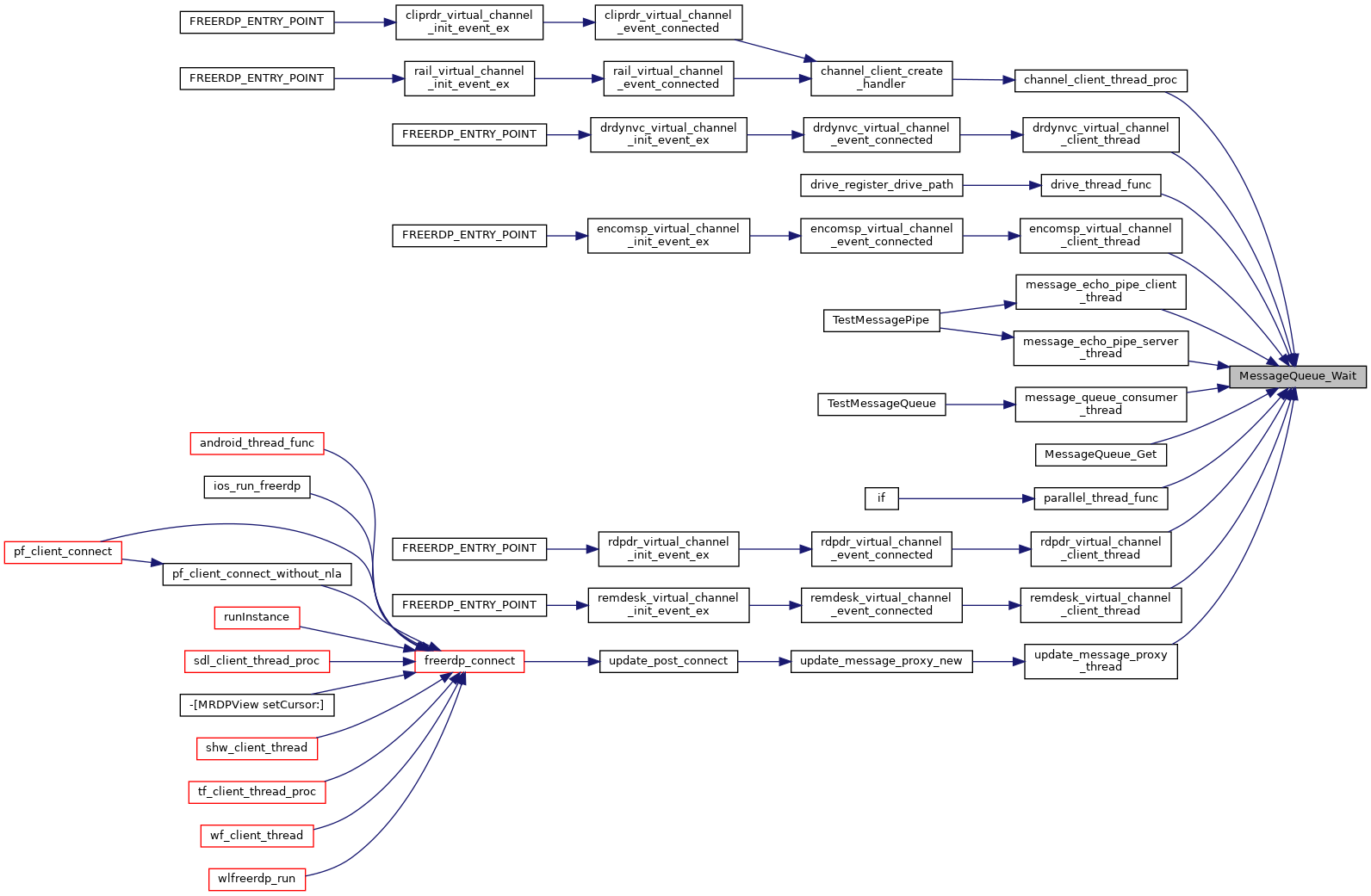MessageQueue.c File Reference
#include <winpr/config.h>#include <winpr/crt.h>#include <winpr/sysinfo.h>#include <winpr/assert.h>#include <winpr/collections.h>Functions | |
| wObject * | MessageQueue_Object (wMessageQueue *queue) |
| HANDLE | MessageQueue_Event (wMessageQueue *queue) |
| size_t | MessageQueue_Size (wMessageQueue *queue) |
| BOOL | MessageQueue_Wait (wMessageQueue *queue) |
| static BOOL | MessageQueue_EnsureCapacity (wMessageQueue *queue, size_t count) |
| BOOL | MessageQueue_Dispatch (wMessageQueue *queue, const wMessage *message) |
| BOOL | MessageQueue_Post (wMessageQueue *queue, void *context, UINT32 type, void *wParam, void *lParam) |
| BOOL | MessageQueue_PostQuit (wMessageQueue *queue, int nExitCode) |
| int | MessageQueue_Get (wMessageQueue *queue, wMessage *message) |
| int | MessageQueue_Peek (wMessageQueue *queue, wMessage *message, BOOL remove) |
| wMessageQueue * | MessageQueue_New (const wObject *callback) |
| Creates a new message queue. If 'callback' is null, no custom cleanup will be done on message queue deallocation. If the 'callback' argument contains valid uninit or free functions those will be called by 'MessageQueue_Clear'. More... | |
| void | MessageQueue_Free (wMessageQueue *queue) |
| Frees resources allocated by a message queue. This function will only free resources allocated internally. More... | |
| int | MessageQueue_Clear (wMessageQueue *queue) |
| Clears all elements in a message queue. More... | |
Function Documentation
◆ MessageQueue_Clear()
| int MessageQueue_Clear | ( | wMessageQueue * | queue | ) |
Clears all elements in a message queue.
- Note
- If dynamically allocated data is part of the messages, a custom cleanup handler must be passed in the 'callback' argument for MessageQueue_New.
- Parameters
-
queue The queue to clear.
- Returns
- 0 in case of success or a error code otherwise.
Here is the call graph for this function:
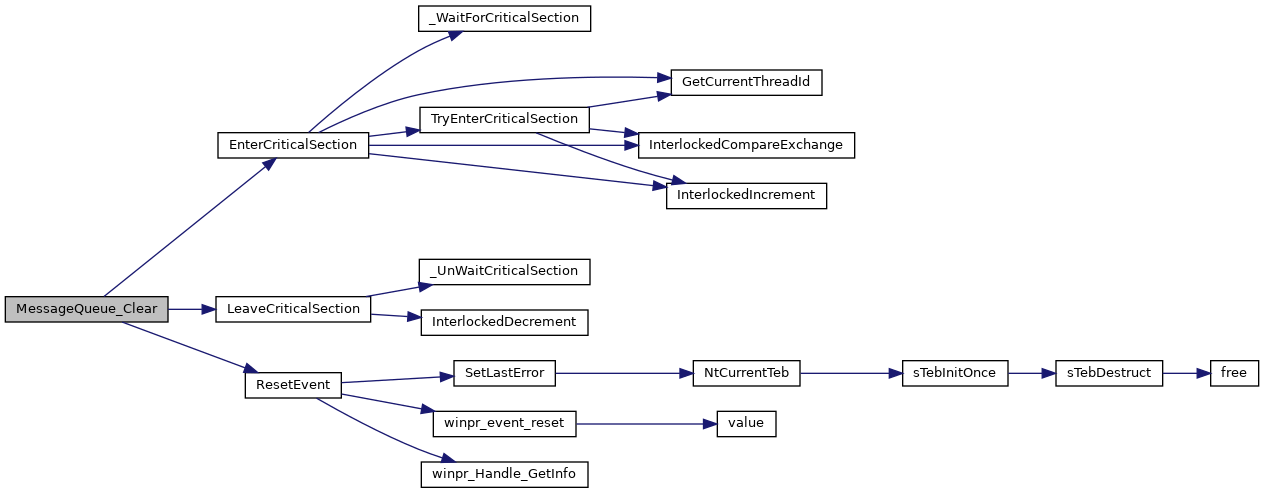
Here is the caller graph for this function:
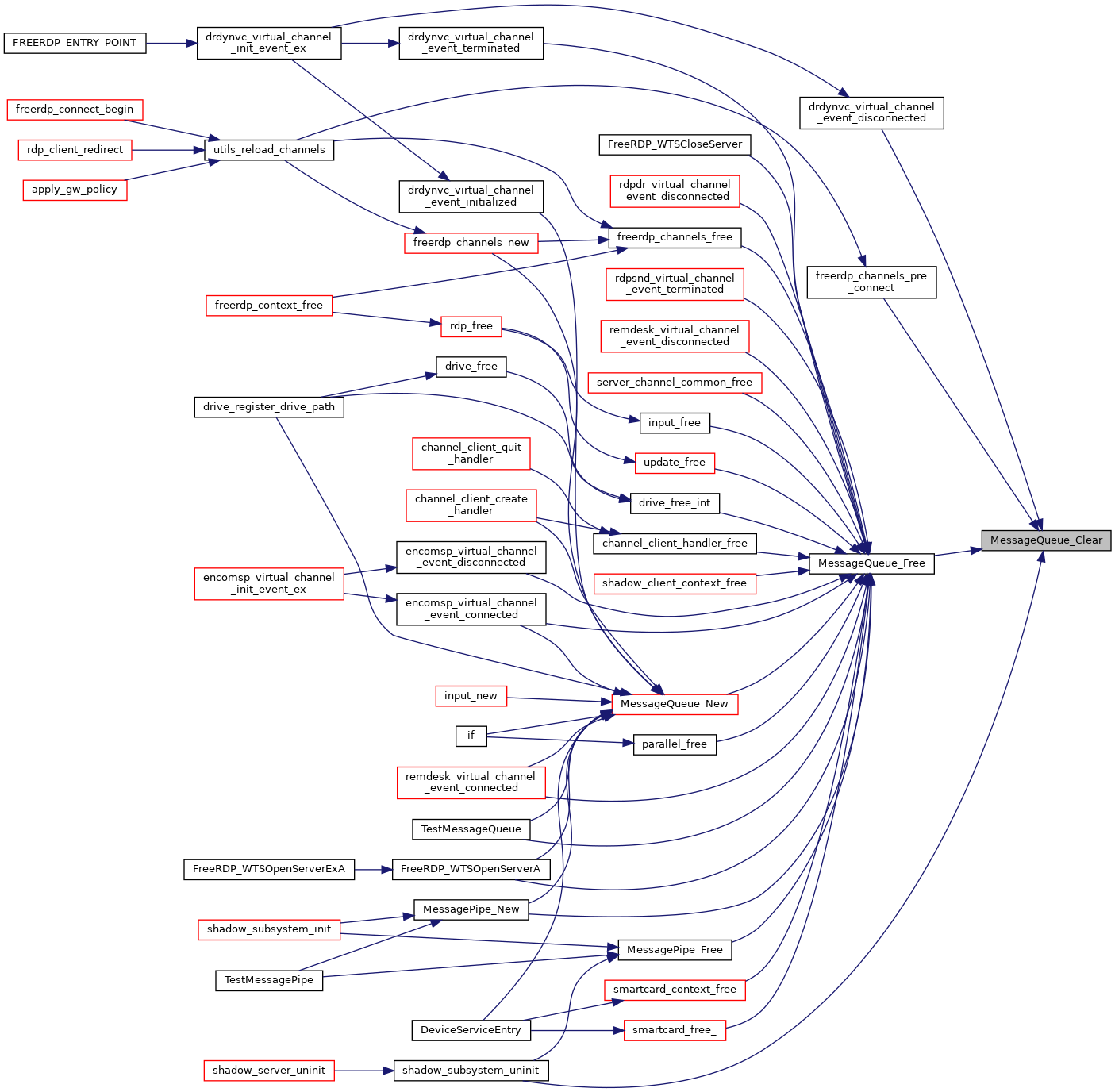
◆ MessageQueue_Dispatch()
| BOOL MessageQueue_Dispatch | ( | wMessageQueue * | queue, |
| const wMessage * | message | ||
| ) |
Here is the call graph for this function:
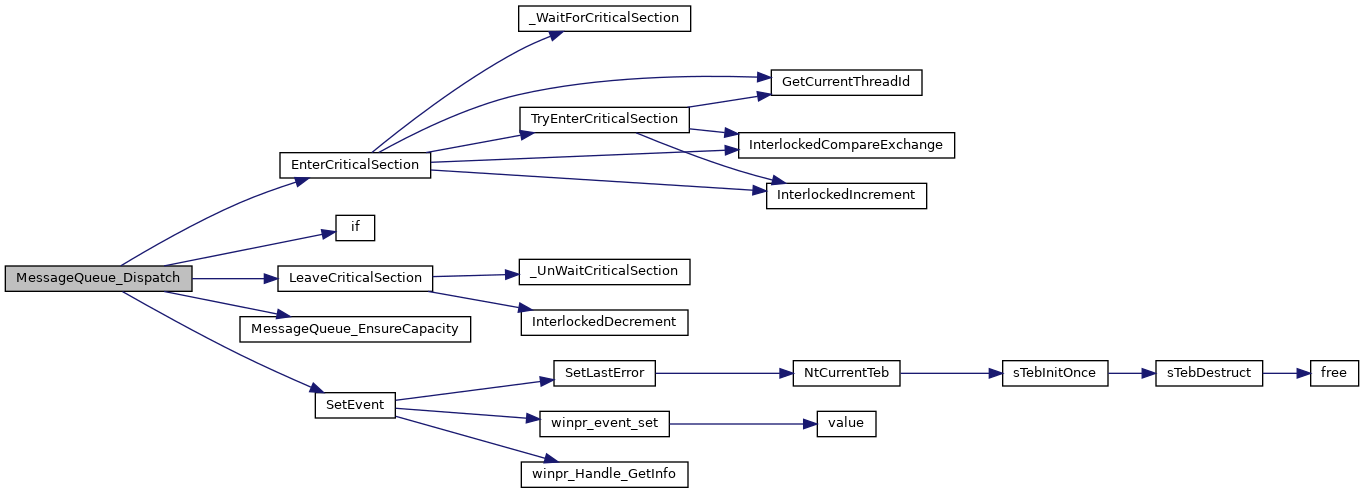
Here is the caller graph for this function:
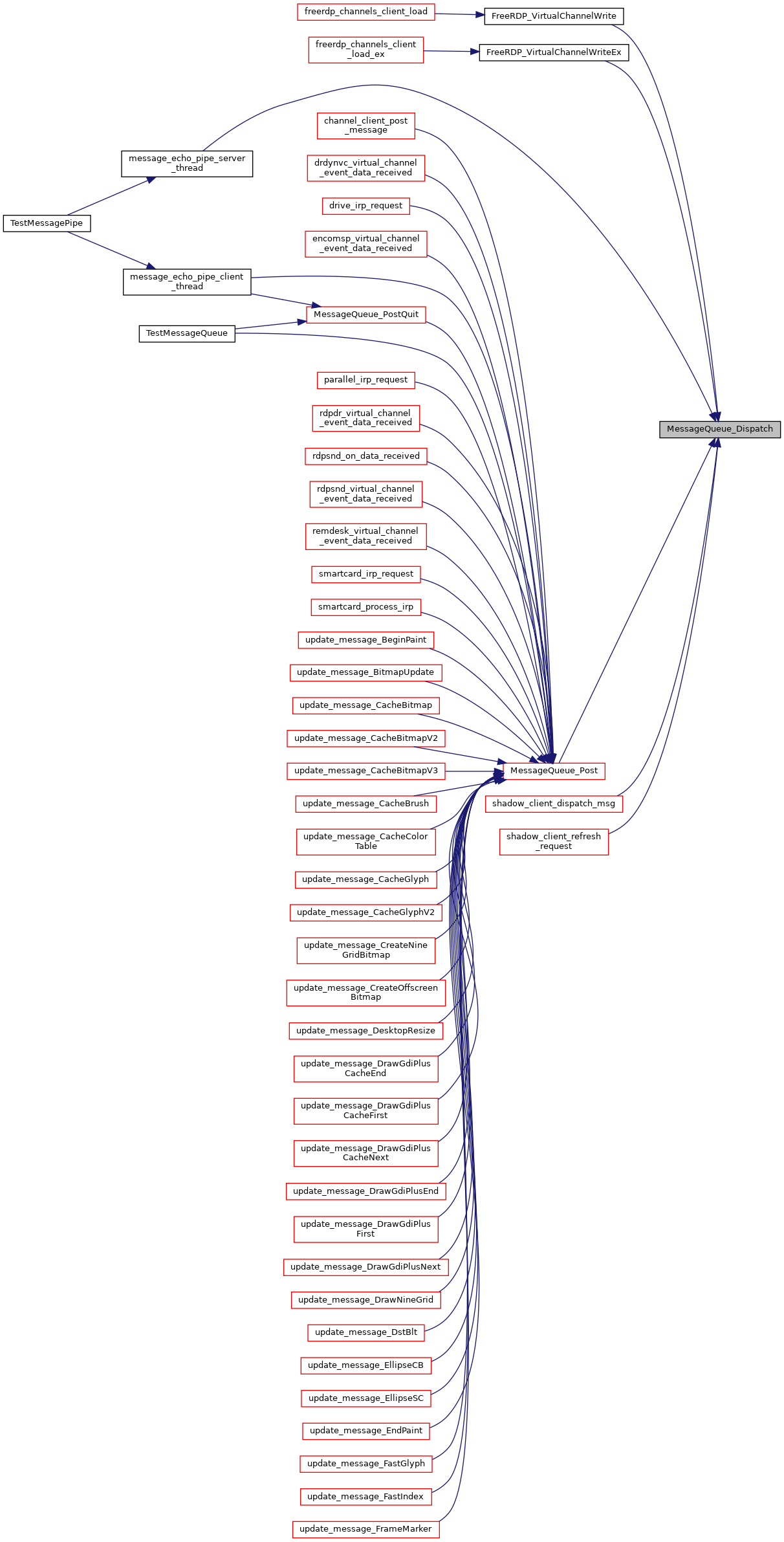
◆ MessageQueue_EnsureCapacity()
|
static |
Here is the caller graph for this function:
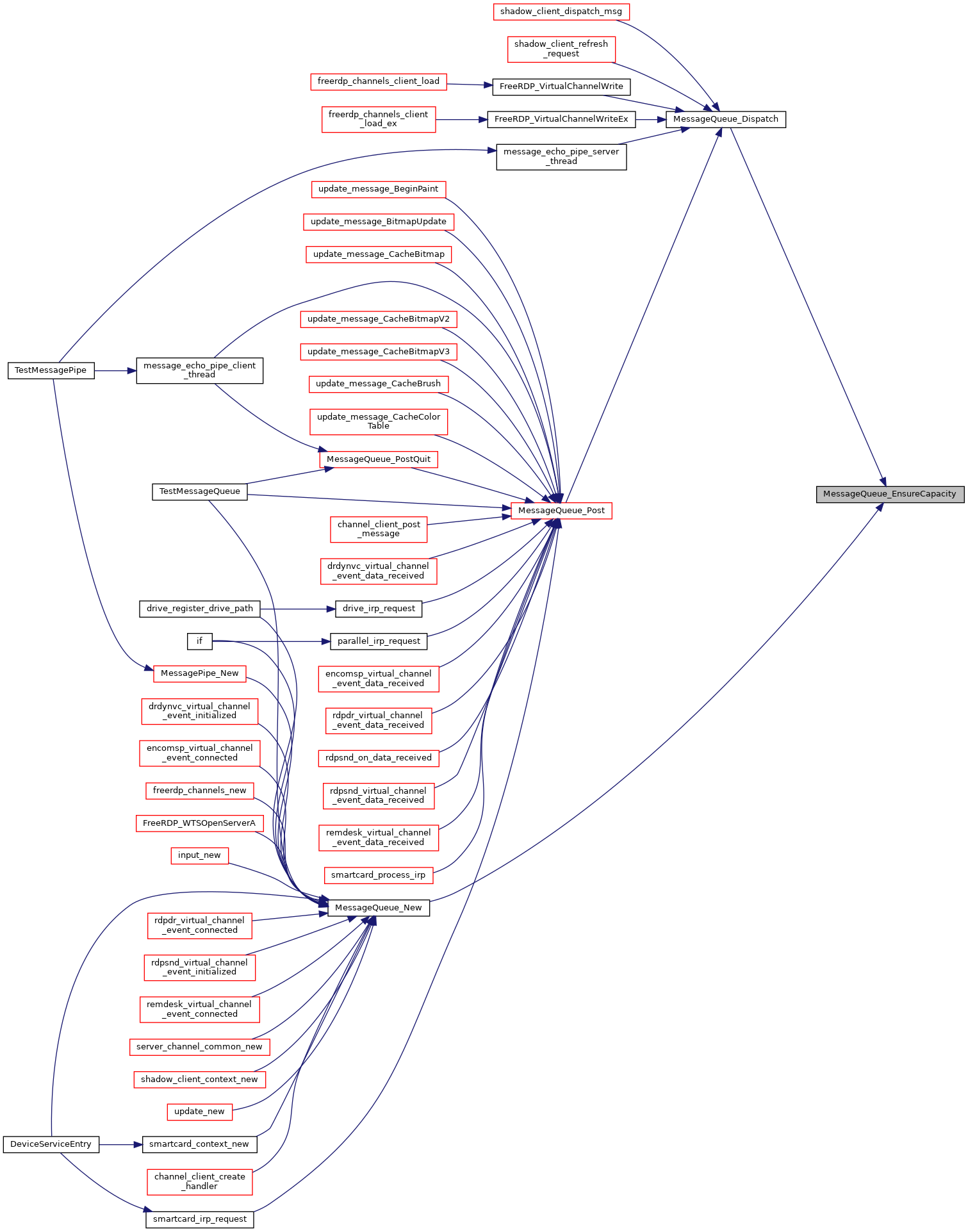
◆ MessageQueue_Event()
| HANDLE MessageQueue_Event | ( | wMessageQueue * | queue | ) |
Gets an event which is set when the queue is non-empty
Here is the caller graph for this function:
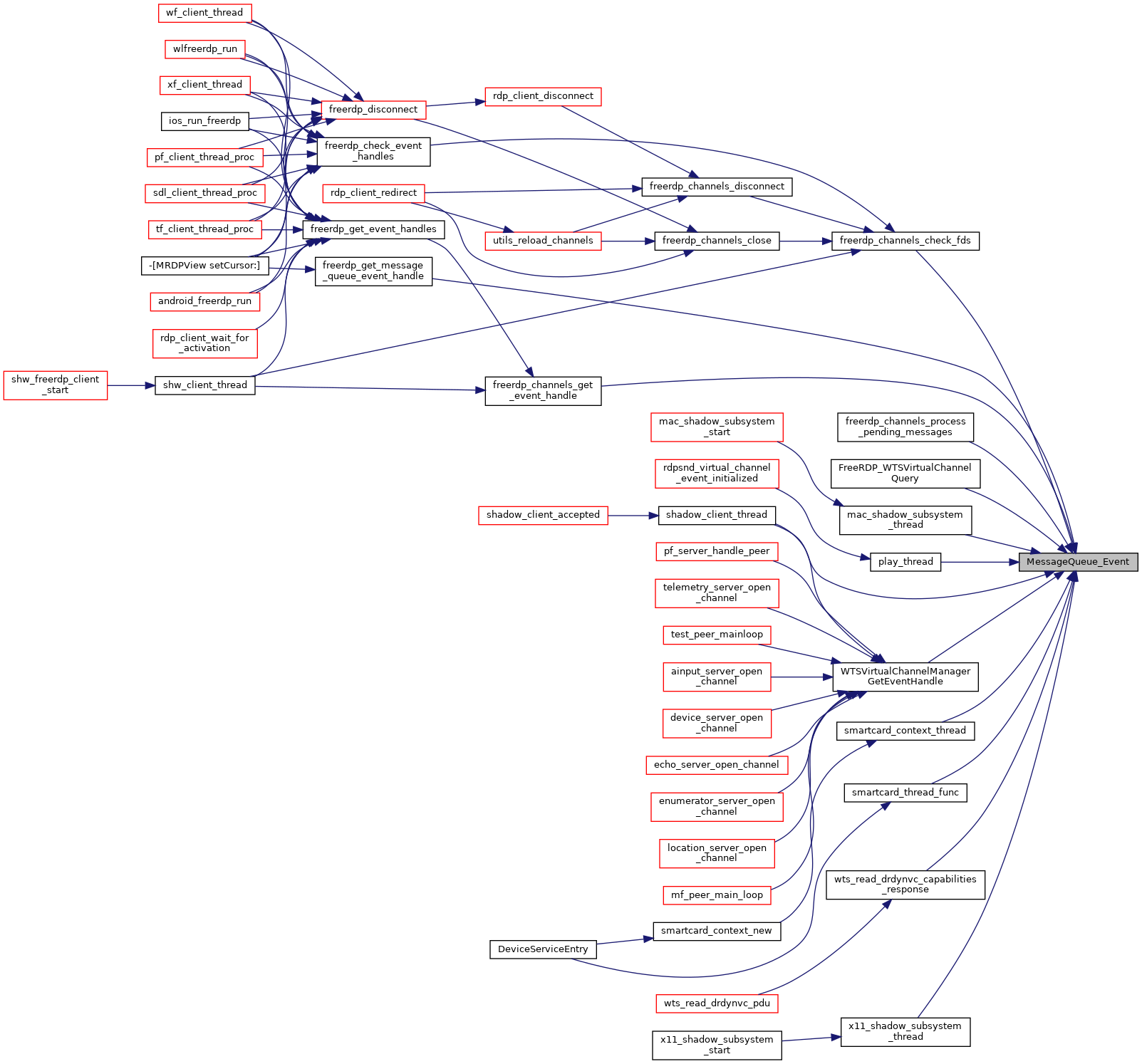
◆ MessageQueue_Free()
| void MessageQueue_Free | ( | wMessageQueue * | queue | ) |
Frees resources allocated by a message queue. This function will only free resources allocated internally.
- Note
- Empty the queue before calling this function with 'MessageQueue_Clear', 'MessageQueue_Get' or 'MessageQueue_Peek' to free all resources allocated by the message contained.
- Parameters
-
queue A pointer to the queue to be freed.
Here is the call graph for this function:
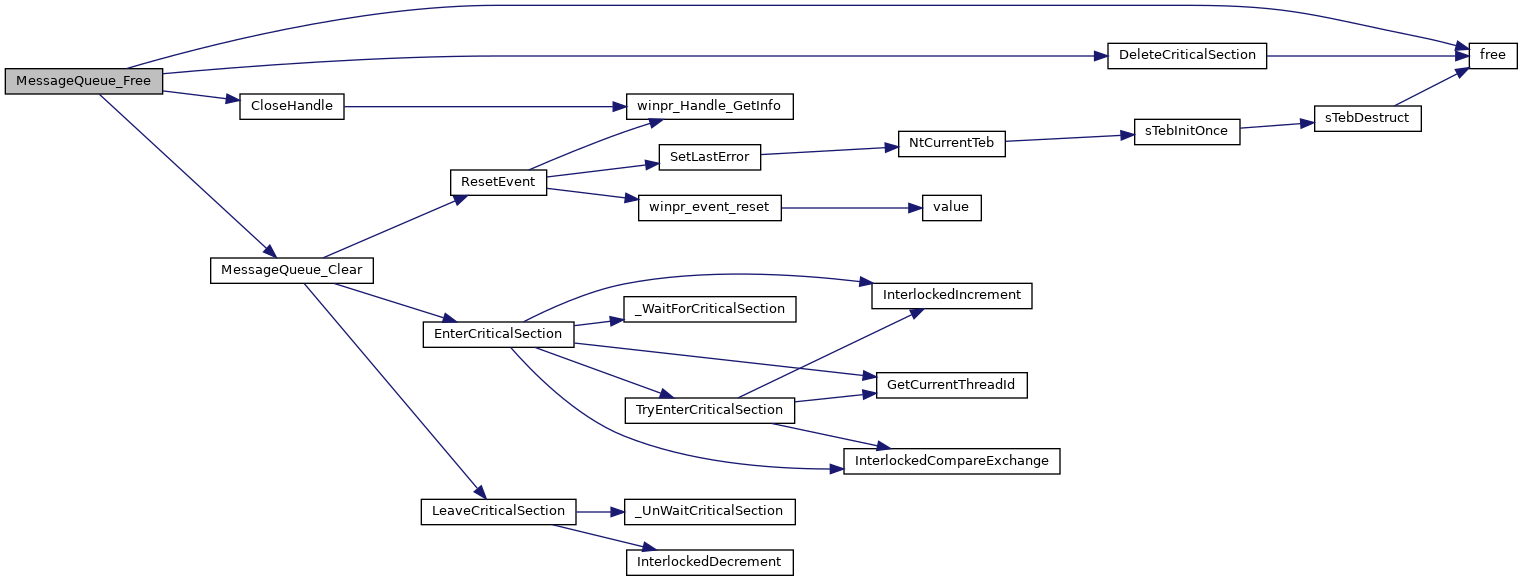
Here is the caller graph for this function:
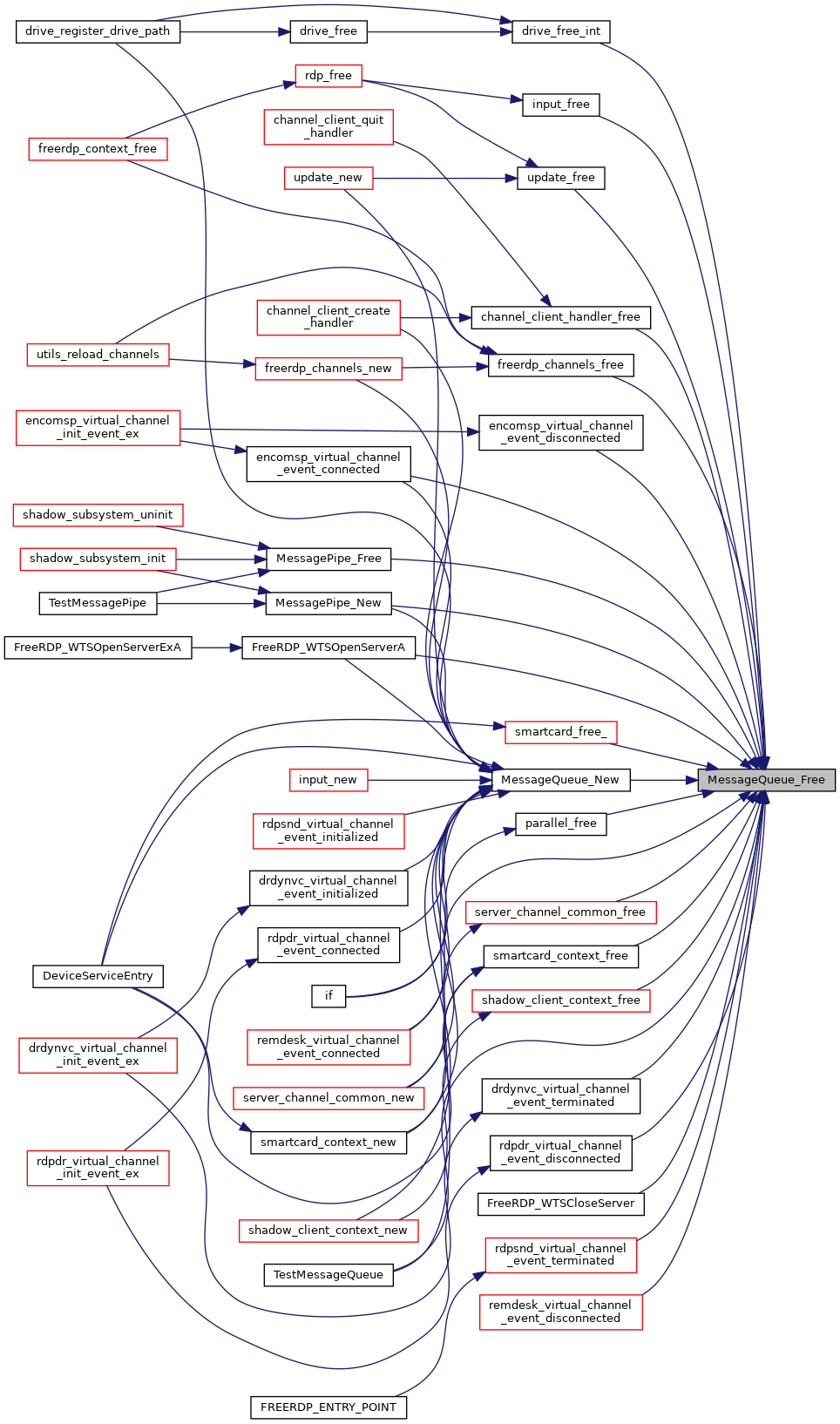
◆ MessageQueue_Get()
| int MessageQueue_Get | ( | wMessageQueue * | queue, |
| wMessage * | message | ||
| ) |
Here is the call graph for this function:
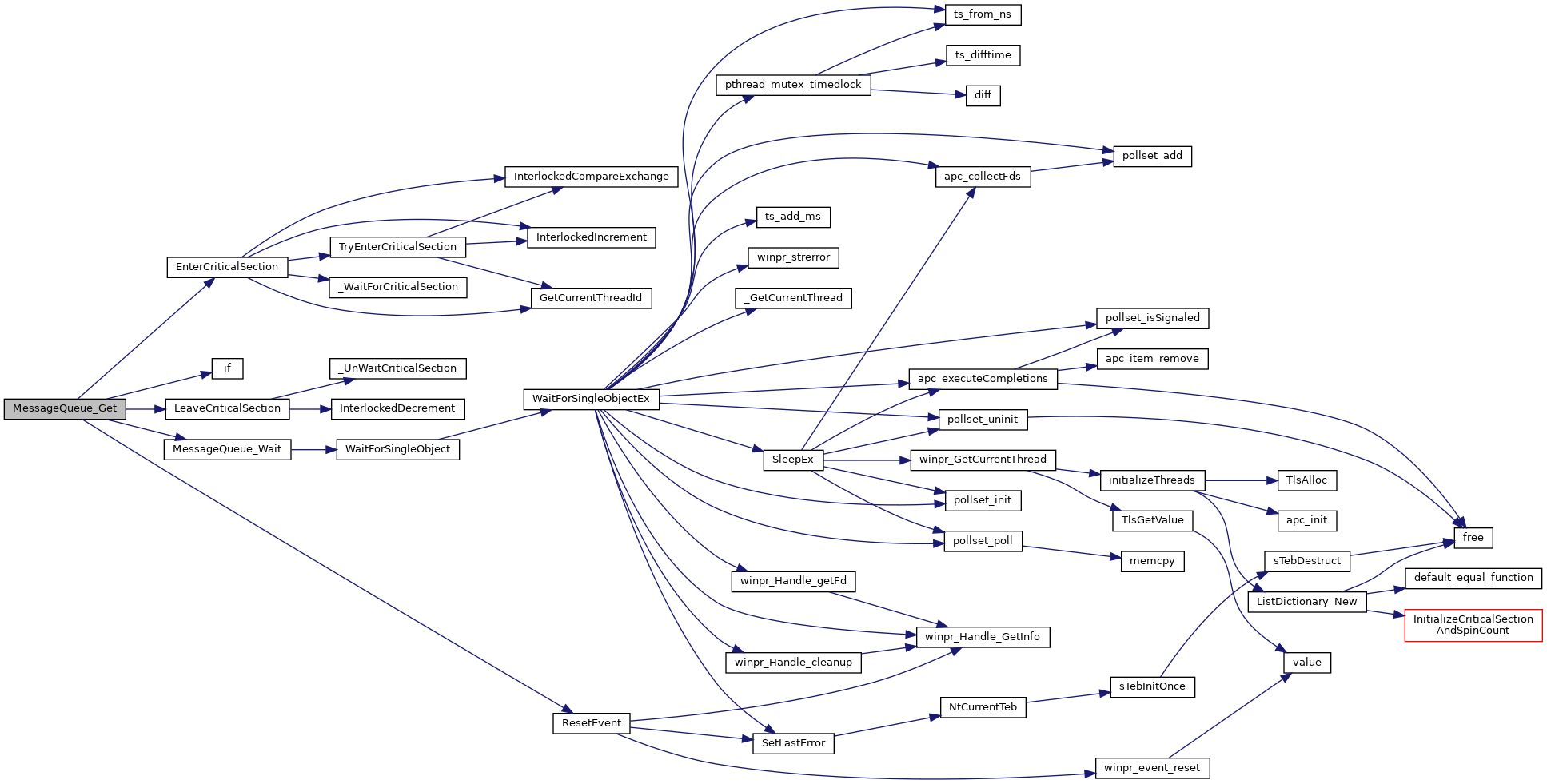
◆ MessageQueue_New()
| wMessageQueue* MessageQueue_New | ( | const wObject * | callback | ) |
Creates a new message queue. If 'callback' is null, no custom cleanup will be done on message queue deallocation. If the 'callback' argument contains valid uninit or free functions those will be called by 'MessageQueue_Clear'.
Construction, Destruction
Here is the call graph for this function:

Here is the caller graph for this function:
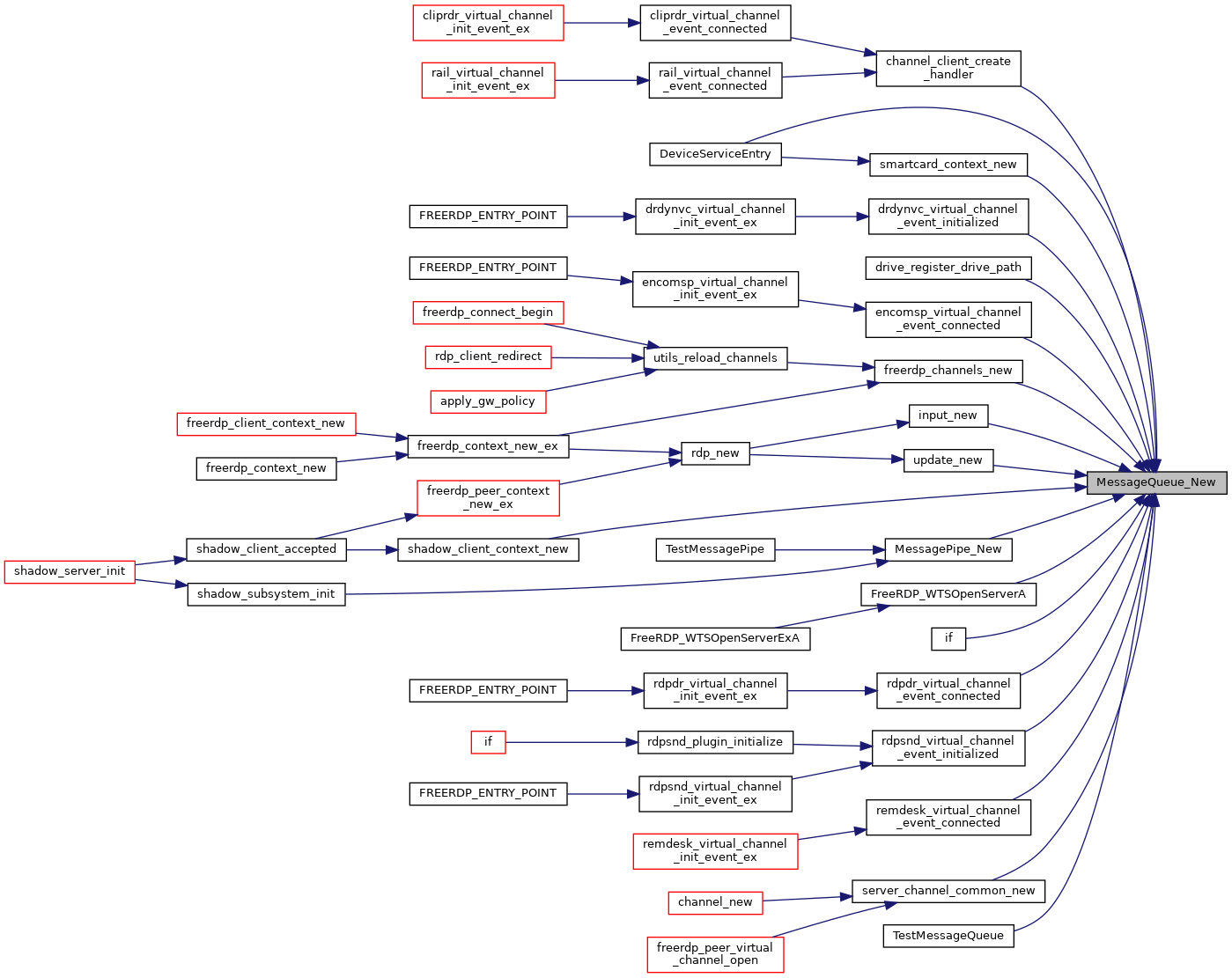
◆ MessageQueue_Object()
| wObject* MessageQueue_Object | ( | wMessageQueue * | queue | ) |
Message Queue inspired from Windows: http://msdn.microsoft.com/en-us/library/ms632590/ Properties
Here is the caller graph for this function:
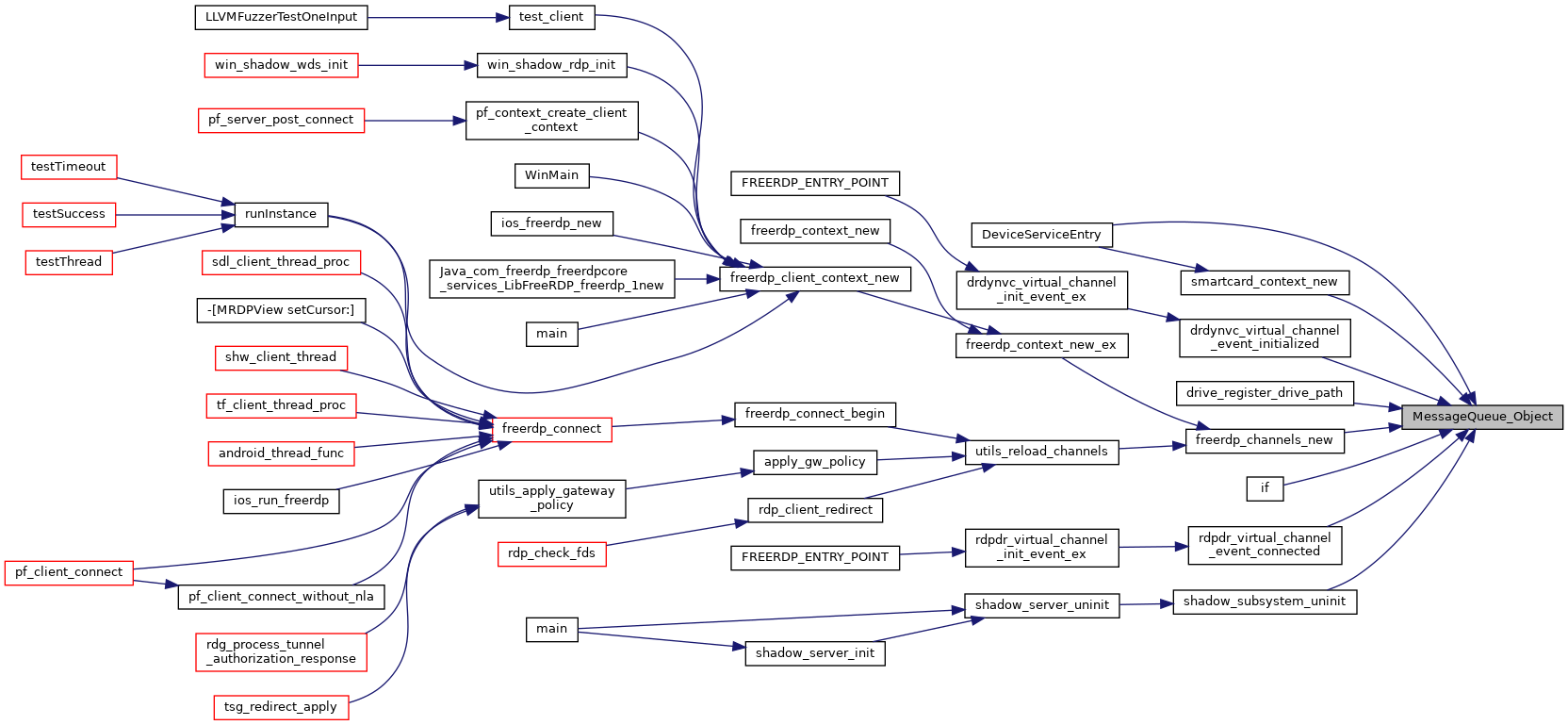
◆ MessageQueue_Peek()
| int MessageQueue_Peek | ( | wMessageQueue * | queue, |
| wMessage * | message, | ||
| BOOL | remove | ||
| ) |
Here is the call graph for this function:
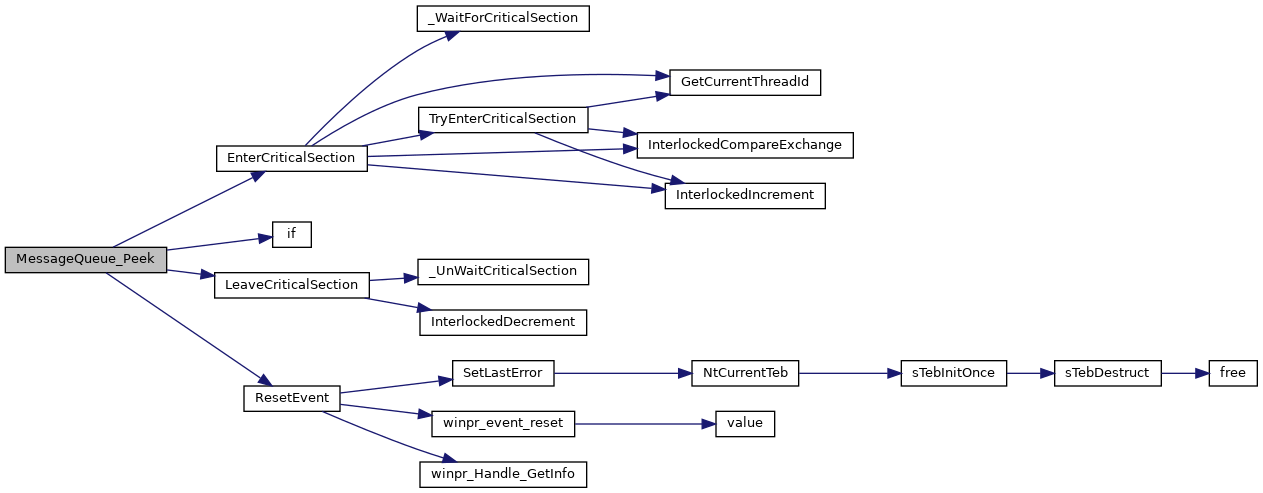
Here is the caller graph for this function:
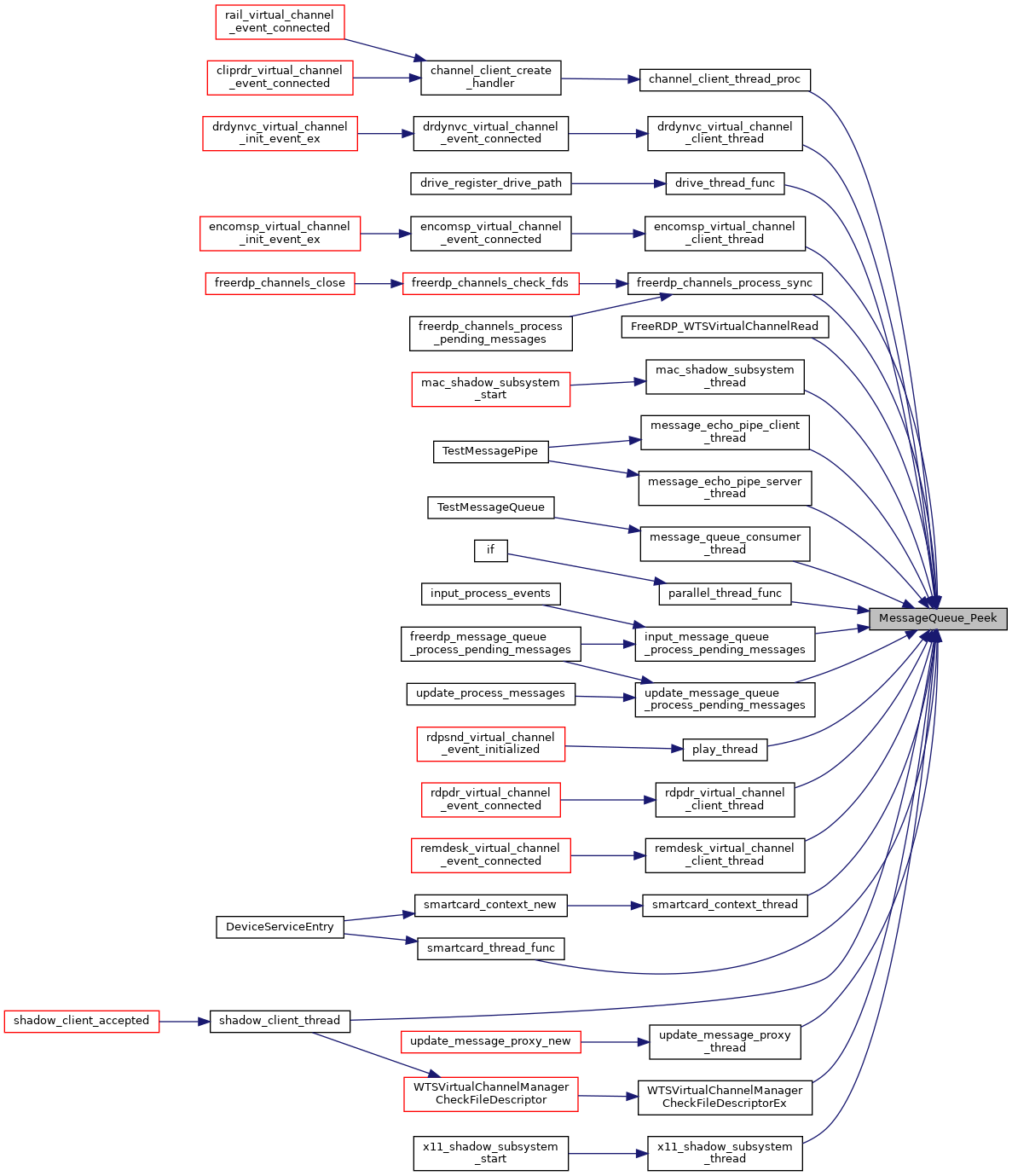
◆ MessageQueue_Post()
| BOOL MessageQueue_Post | ( | wMessageQueue * | queue, |
| void * | context, | ||
| UINT32 | type, | ||
| void * | wParam, | ||
| void * | lParam | ||
| ) |
Here is the call graph for this function:

◆ MessageQueue_PostQuit()
| BOOL MessageQueue_PostQuit | ( | wMessageQueue * | queue, |
| int | nExitCode | ||
| ) |
Here is the call graph for this function:

Here is the caller graph for this function:
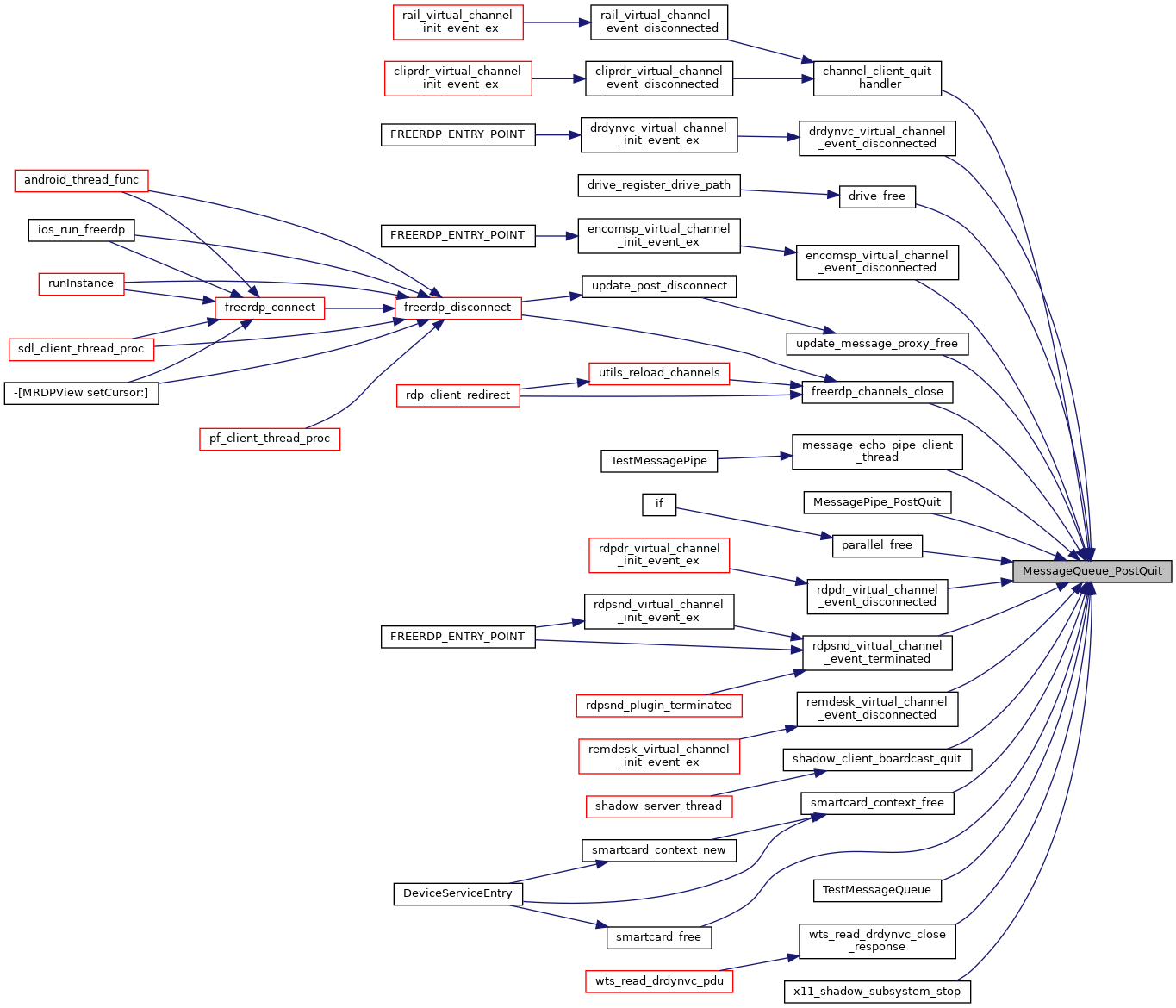
◆ MessageQueue_Size()
| size_t MessageQueue_Size | ( | wMessageQueue * | queue | ) |
Gets the queue size
◆ MessageQueue_Wait()
| BOOL MessageQueue_Wait | ( | wMessageQueue * | queue | ) |
Methods
Here is the call graph for this function:

Here is the caller graph for this function:
